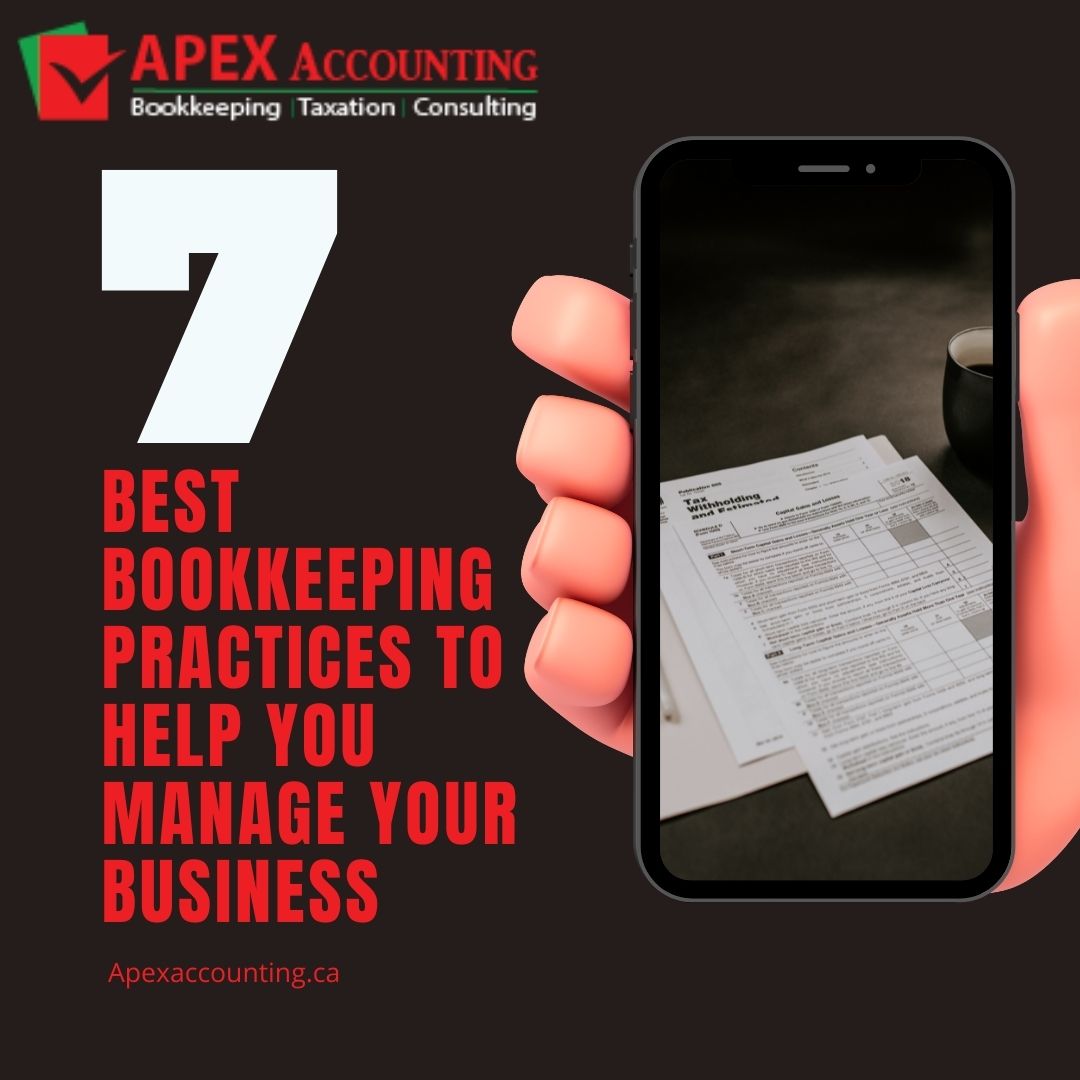
By: jnawali
Bookkeeping Services
Comments: No Comments.
When it comes to managing a business, one of the last things that people want to deal with is Bookkeeping. If you are just starting your first small business, it can be hard to know what to do when it comes to bookkeeping. There are many traps that first-time small business owners fall into when managing their business’s finances so we have 7 bookkeeping practices to help you manage your business.
1. Separate Your Personal And Business Finances
When it comes to finances there is a big temptation to mix together business and personal finances because it can save time. However, co-mingling your finances can lead to a ton of headaches in the future. When you start a business you should also start a bank account associated with it. Do your best to make sure that all the accounts for that business are strictly related to the business. This not only keeps your finances clean but also builds your business’ credit.
2. Outsource Your Payroll
Payroll can be one of the most time-consuming and stressful aspects of a business. You need to file the payment, withhold employee taxes and then file the returns. If you are a business owner, you are likely not an expert in this and that’s ok. Many small business owners find that the ROI of extra from outsourcing payroll services to be well worth the cost.
3. Stay Aware Of Tax Deadlines
Tax season seems to always come upon us before we are ready and that is especially true for business owners. This is only exacerbated by being a business owner, as you have so much more to handle than the average person. Keeping in touch with an accountant regularly throughout the year is one of the best ways to manage this.
4. Pay Yourself A Salary
When it comes to running a small business, you might think that you are finally free of salary work. However, if you are a small business owner paying yourself a salary has a ton of benefits. This ties into the first bookkeeping practice we talked about, that being to keep your business and personal financials separate.
Paying yourself a salary is one of the best ways to keep them separate. Have your business pay you a salary every month into a personal account and use that account to pay off any personal expenses.
5. Reimburse Yourself For Business Expenses Paid For With Personal Funds
On the topic of keeping your business and personal finances and expenses separate, make sure that you always pay yourself back if you pay for business costs with personal money. While you should always do your best to keep your business and personal expenses separate, we understand that sometimes that it happens.
When those situations do occur, always reimburse your personal account with money from your business’s account. When you need to reimburse yourself list the expenses along with the date, vendor, and purpose on a spreadsheet and attach the receipts. Then give this information to the proper department at your business and have them give you a check for that amount. This way your bookkeeper will deduct the expenses because they were paid for with a check from the business account.
6. Download Your Banking Transactions Early And Often
The last thing that you want as a business owner from a bookkeeping perspective is to have a large pile-up of bank statements.
Do your best to make time to review when new bank statements come in so that you can make sure that there are no unauthorized disbursements and resolve any issues as quickly as possible to help save yourself the headache.
7. Hire a CPA To Manage Your Bookkeeping
When you first start your business you will likely be handling the bookkeeping on your own, however as your business grows, you might find it beneficial to hire a CPA to handle the bookkeeping for you. This way you can handle the main work of your business and rest assured that your small business’ books are being handled by a professional. If you are interested in hiring a CPA for your business you can reach out to us for a free consultation!
